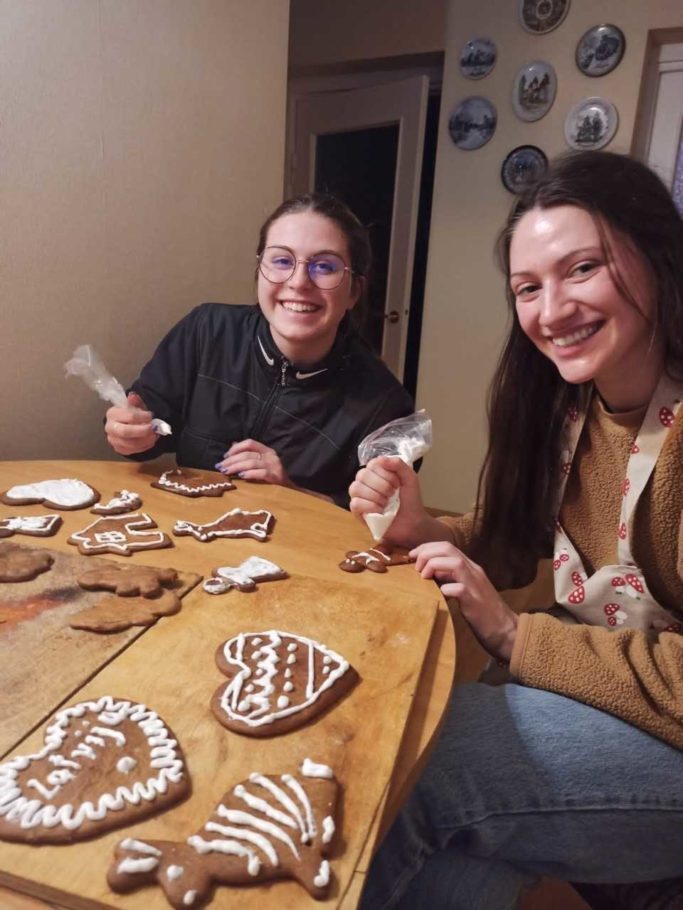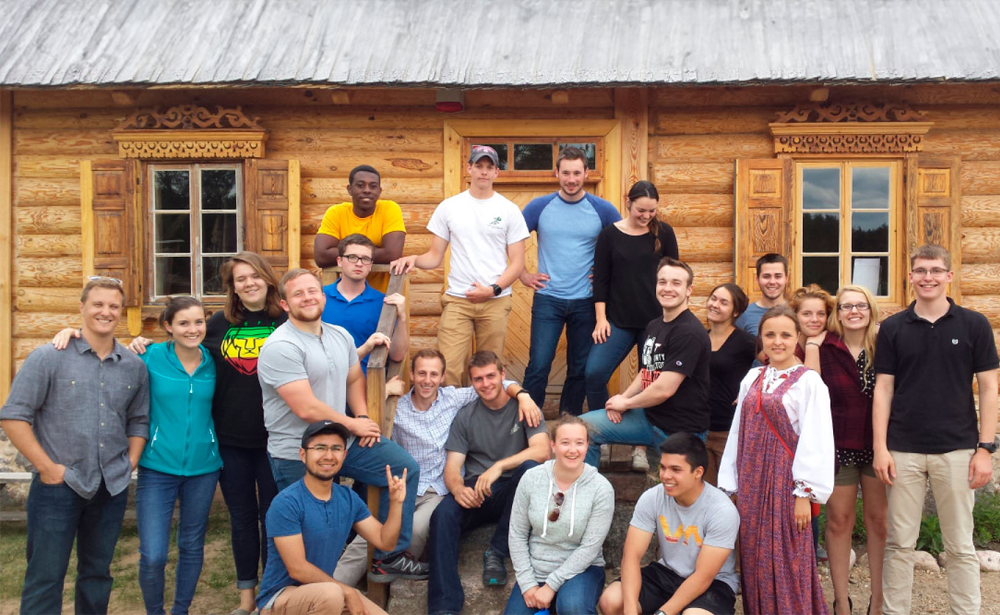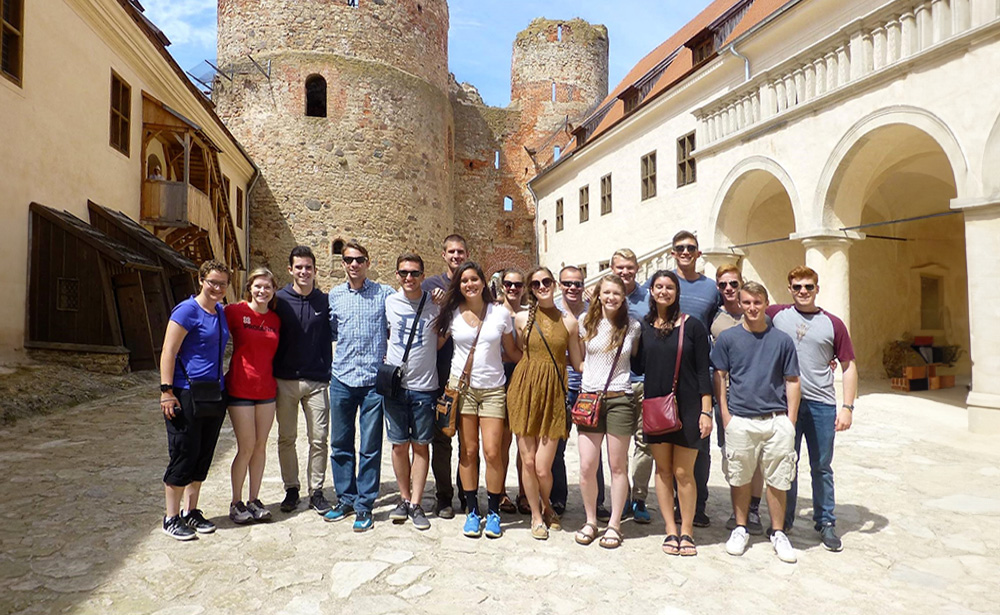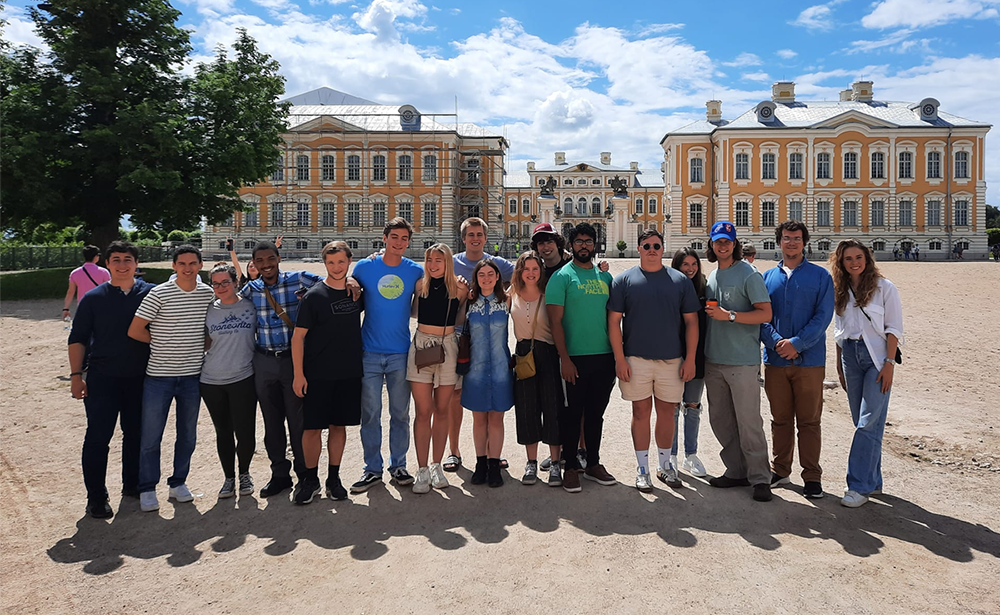Studying Abroad for the Last Semester of College, Part Two
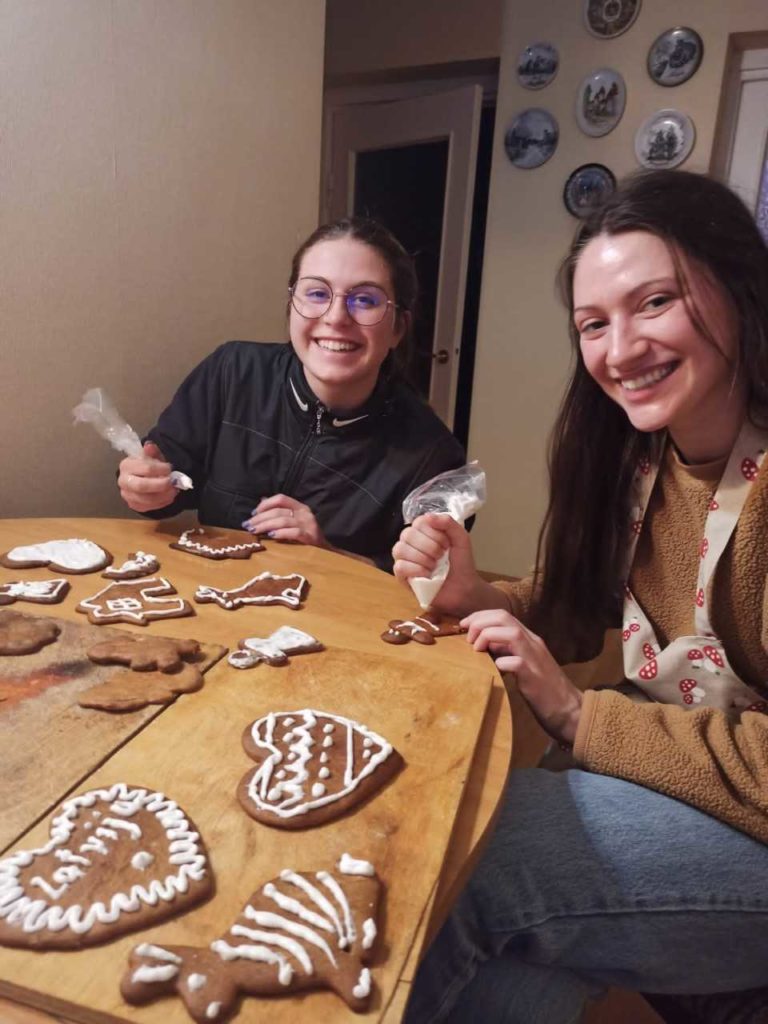
Author: Samantha, Florida, USA
Almost two months into my time in Daugavpils, and I’m having more fun than ever. But first: in my last blog post, I know I promised a super-secret, exciting trick for language learning, and here it is: DANCE!
No, seriously.
Particularly as a Floridian, you would not be alone in feeling surprised that the place and time in my life I decided to become a salsa dancer would be in Latvia, mid pandemic and Russo-Ukrainian war. But here I am, nonetheless. I can explain why, too.
Learning Russian in a Daugavpils University classroom is engaging and exciting. I confidently add about 15 words to my vocabulary every day because I will learn new words in one class and then apply them in the next, and so on. My teachers constantly ask me questions and give me space to practice speaking and reading. Yet, besides talking with my lovely host mom or doing my homework, I found myself leaving my Russian at school when I left for the day. Salsa offered the perfect opportunity to be active, meet new people, and learn and apply vocabulary in a more casual, friendly way.
I think one of the most critical parts of abroad time is figuring out how you’re going to fill your extra moments. Most of us, on our campus or in our lives, have daily or weekly extracurricular obligations. Here, you truly have a clean slate. You can decide if you want to go to the gym every day, eat at every restaurant, travel to random, nearby towns, or curl up into the fetal position and watch Netflix. Because Daugavpils can get dark and gloomy, I cannot recommend an active lifestyle highly enough.
The next hardest step is actually finding somewhere to go and then taking the leap of courage to go there. Discovering the salsa classes, for instance, was a fluke. My friend and I are regulars at a local restaurant, and while he was talking to another regular, she invited him and the rest of our cohort to tag along. Every Tuesday and Thursday, that friend and I walk about fifteen minutes to the studio, which sits on the third floor of a random apartment-looking building in the deep center of a Soviet-style courtyard. About ten people show up every week, and together, we have gone from not knowing anything to a confident, fun routine. The teacher bounces between Russian, Latvian, and English, and the fellow friends I’ve made in that class have helped me almost as much as my teachers in building confidence and knowledge with my Russian language skills.
Daugavpils is both a big and a small city. Between salsa, school, regular gym trips, and volunteering at an English conversation club, I’m finally starting to recognize faces on the street. Taking the initiative to find something that makes you happy is imperative. At the end of every salsa class, I have a massive grin on my face every time. And yes, I am a horrible dancer. The point is to use your extra time intentionally in ways that feed academic, intellectual, and personal joy.
The city is filled with frankly random activities, and I hope you try them all. If you keep your ears open, you’ll find plenty to do. Some of the things I’ve enjoyed doing most—hockey games, ice skating, and visiting the bazaar, to name a few—have been spontaneous but unforgettable. These unique experiences have made my time in Daugavpils not only exciting but also grounding. Before I came here, I tried to do a million things all the time. I’ve found that this new environment allows me to only prioritize the things that are the most fun to me, and in turn, I’ve become a healthier, happier person.
You may be interested
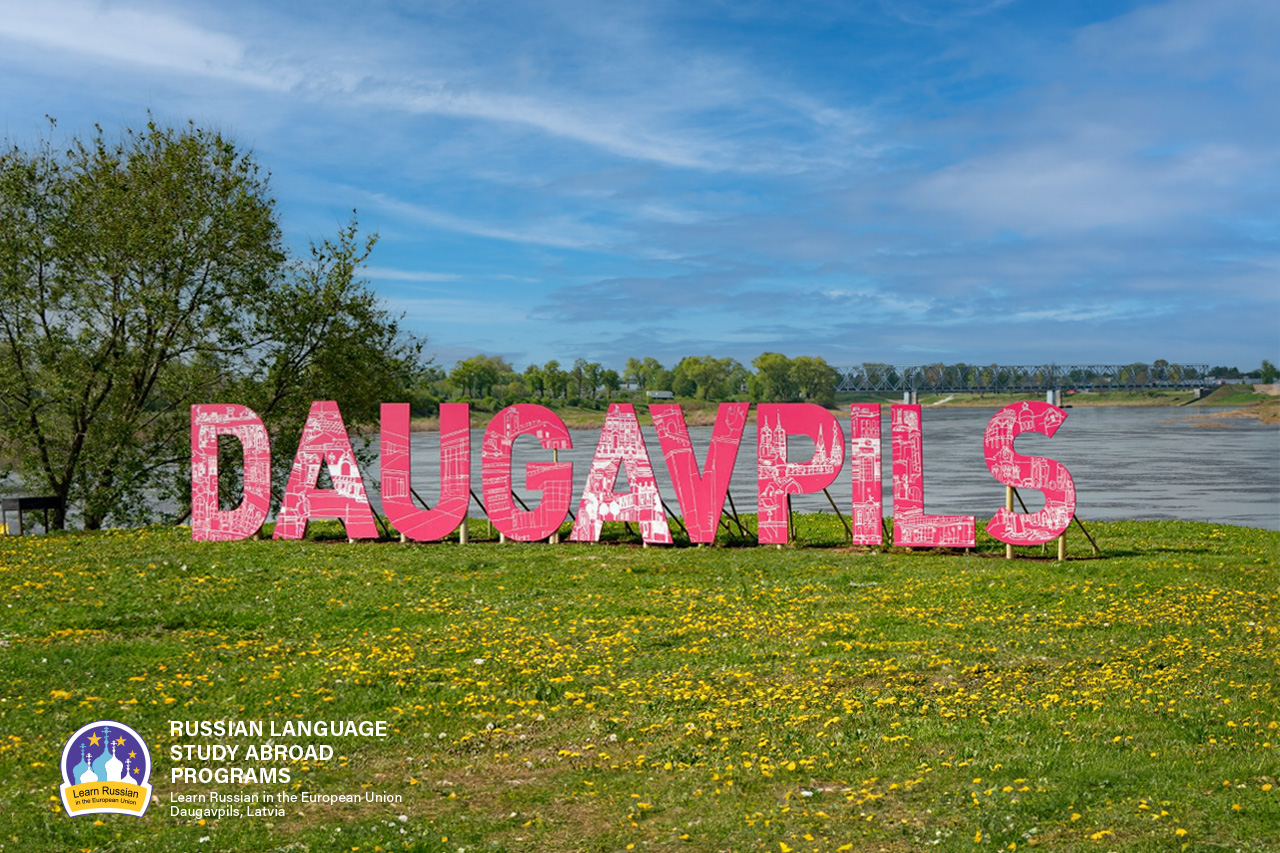
Why do people speak Russian in Daugavpils?
As it seems to us, Daugavpils is the best place to learn Russian now, because our city is situated in the EU and NATO, but at the same time 90% of the city’s population speak Russian at home.
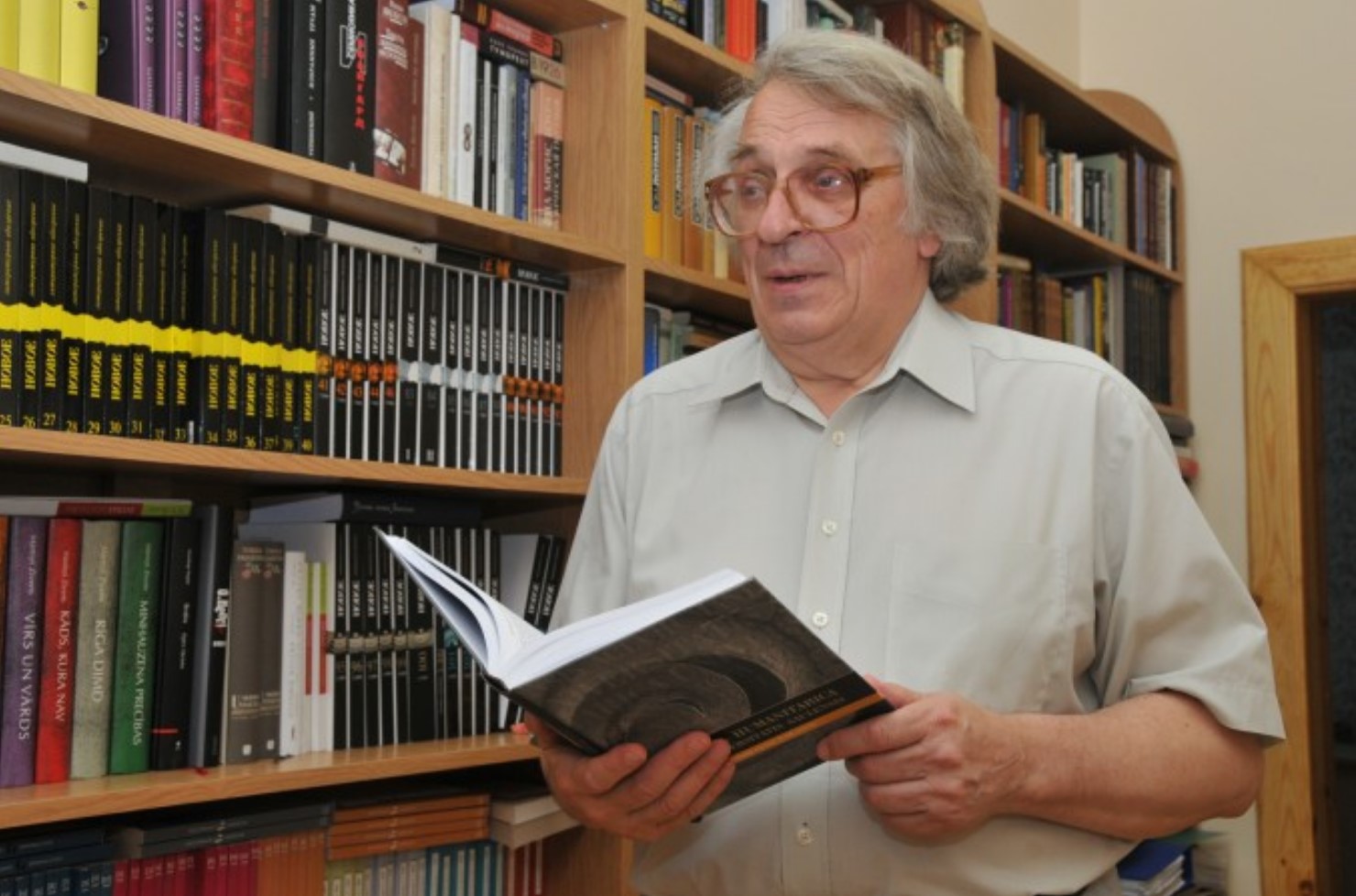
ЭТЮД О ДВИНСКЕ
Etude on Dvinsk by F.Fedorov
The Baltic region is one of the most catastrophe prone regions of the 2nd millennium, especially its second part; it is the centre of attraction of ‘geopolitical’ interests of the European world. Probably the most tragic fate has befallen to the eastern part of the present Latvia and its multi-titled town of Dinaburg – Dvinsk – Daugavpils. During its 730 years long history, the town went through five rather autonomous periods of development, five different lives (German, Polish, Russian, Latvian, Soviet), and at the beginning of the 1990s it entered into the 6th period.
The history of Dinaburg – Dvinsk – Daugavpils is the history of five attempts by the town to begin its life anew; and this is determined not only by the fact that the town was four times burned down and had to start life from scratch, but first and foremost because each of these periods was characterized by a total change of ethnos and the socio-cultural field.
The present article deals with the cultural space of the town in one of the most efficient periods of its development – from the 1860s till World War I.


